Iran Declines Volleyball Match Against Russia Fearing Repercussions
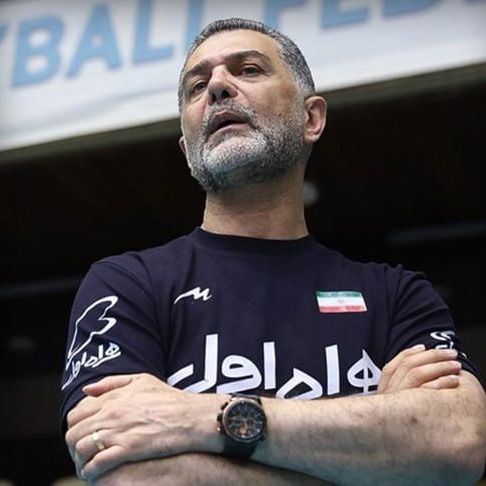
Iran's national volleyball team coach says the team declined a friendly match against Russia, citing Western sanctions on Moscow.

Iran's national volleyball team coach says the team declined a friendly match against Russia, citing Western sanctions on Moscow.
Behrouz Ataie told state radio on Thursday that “we rejected it due to the sanctions which might have some consequences for us".
He said playing against Russia risks problems for the team along with its staff and coaches if the visas are seen by the US embassy in the future, if players and staff, or the team want to visit the United States.
In response to Russia's attack on Ukraine, sanctions have been imposed on Russian national teams, which means that Russian athletes will not be able to participate in the Olympics and other international events.
Several international sports leagues and organizations have banned Russian athletes from competition since its invasion of Ukraine last year. A number of sanctions have been imposed against Belarus, which allowed Russia to stage the invasion using its territory.
Sports as diverse as tennis, soccer, volleyball, basketball, ice hockey, auto racing, and track and field have been affected by the actions.
International soccer's governing body, FIFA, as well as its European counterpart, UEFA, have banned Russian national teams and clubs out of international competitions.
Iran is already suffering at the hands of global sanctions for both its nuclear program and sanctions imposed for human rights violations in protest crackdowns and as such, teams are hesitant to risk further punishments as has been levied to Russian athletes.

A media frenzy has ensued following a lawmaker’s revelations that dozens of MPs have been given SUVs to scrap an impeachment motion.
Ahmad Alirezabeigi, an MP representing Tabriz, revealed on Wednesday that the Industry Ministry gave at least 70 SUVs to parliamentarians to annul the motion against the Minister of Industry, Mines and Trade, Reza Fatemi Amin, about five months ago, when he was on the brink of an imminent impeachment.
The issue has been raised now Amin is facing another wave of criticism and is about to be impeached again, with several MPs asking questions about the SUV scandal. It is the first time corruption has been so openly addressed in spite of it being a historic trend in the regime.
Alirezabeigi called it a “tradition in the parliament” whenever the issue of impeachment is brought up. “Some people gain privileges on various excuses to compromise and undermine the supervisory duty of the parliament.”
The lawmaker also dismissed claims by other colleagues that Khamenei's recent statement about putting an end to disputes between the three powers of the government meant that he had ordered the Majles to stop the impeachment of the industry minister. Along with other MPs, Alirezabeigi is determined that the impeachment will move forward, accusing the minister of unethical policies including raising car prices.
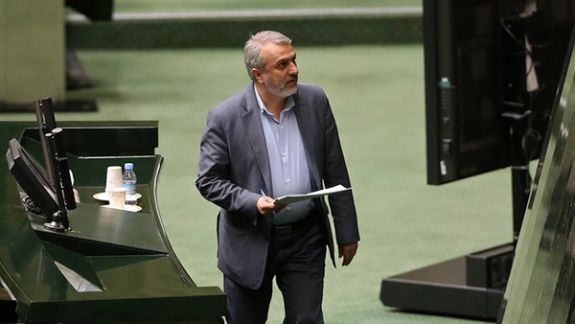
In a bold statement, he said: “Fatemi Amin has given 75 Chinese SUVs to the representatives as a gift, of course I do not have any documents at the moment, but documents are available in the Article 90 Committee and the case is under investigation,” adding that the cars were Bahman Fidelity Prime, a 7-seater mid-size crossover produced by Jetour, and Bahman Dignity Prime, a mid-size crossover produced by the Chinese automaker Dongfeng Motor.
Offering valuable background on the case, Ahmad Rasoulinejad, another leading lawmaker, said that until the last night before the session to discuss the impeachment in December 2022, more than 60 percent of MPs were in favor of the motion but at the last moment it was announced there were not enough votes to go ahead with the impeachment, the government announcing only 85 in favor and 185 against. Rasoulinejad said: “I consider that day a dark day in the history of the parliament.”
Article 90 Committee of the Constitution, tasked with dealing with public complaints about the work of the three branches – namely executive run by Raisi, judiciary run by Ejei, and legislature run by Speaker Bagher Ghalibaf – denied the existence of such a case.
The Majles (parliament) began to warn President Ebrahim Raisi about the weak performance of his economic team including the ministers of industry (Reza Fatemi Amin), labor (Hojjat Abdolmaleki) and economy (Ehsan Khandouzi), two months after Raisi took office in August 2021.
Since then, Raisi has said repeatedly that he is planning a reshuffle but has not done anything yet. He had promised both during his election campaign and in the following months that he was adamant to improve the critical economic situation of ordinary people. In the meantime, lawmakers have renewed their calls for impeachments almost every month.
The lawmakers' heightened attacks on the government might be a tactic by the members of the parliament to distance themselves from the inefficient government during their last year in the Majles, in a bid to increase the chance of their re-election.
On Thursday, several government and parliament officials denied the claims, with calls for legal action against the "slanderers." Prominent hardline lawmaker Nezamoddin Mousavi, the parliament’s presidium spokesperson, said Thursday that the parliament has investigated the claims and they are not true.
Amin wrote to the head of the judiciary, Gholamhossein Mohseni-Ejei, urging immediate punishment. The letter, published Thursday, said: “Considering the damage of such statements to the public trust and the weakening of the country's social capital, please order that this issue be investigated as soon as possible, and legal measures be taken to prosecute the wrongdoers.”
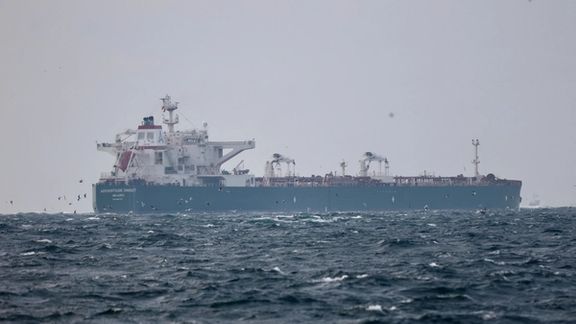
Iran’s navy seized a Marshall Islands-flagged oil tanker in the Gulf of Oman on Thursday amid wider tensions over Tehran’s nuclear program, the US Navy said.
The Navy’s Mideast-based 5th Fleet identified the vessel as the Advantage Sweet. Satellite tracking data for the vessel from MarineTraffic.com showed it in the Gulf of Oman just north of Oman’s capital, Muscat, on Thursday afternoon.
It had just come from Kuwait and listed its destination as Houston, Texas.
The Advantage Sweet, a Suezmax oil tanker built in 2012, issued a distress call at 1:15 p.m. while in international waters as Iran seized the vessel, the Navy said.
According to the International Maritime Organization (IMO) shipping database, the Advantage Sweet is owned by a China-registered company called SPDBFL No One Hundred & Eighty-Seven (Tianjin) Ship Leasing Co Ltd.
Iran's army later said it had seized the oil tanker after it collided with an Iranian boat, injuring several crewmen, Iranian state media reported.
"A Marshall Islands-flagged oil tanker was seized by Iranian army's naval force in the Persian Gulf after it collided with an Iranian boat in the Gulf of Oman and tried to flee," the army statement said.
"Two members of the boat's crew are missing and several were injured due the collision of the ship with the boat."
However, the 5ht Fleet said, “Iran’s actions are contrary to international law and disruptive to regional security and stability. Iran should immediately release the oil tanker.”
It also said the Iranian seizure was at least the fifth commercial vessel taken by Tehran in the last two years.
“Iran’s continued harassment of vessels and interference with navigation rights in regional waters are a threat to maritime security and the global economy,” the statement added.
Iran in November released two Greek-flagged tankers that it seized in the Persian Gulf in May.
With reporting by AP and Reuters
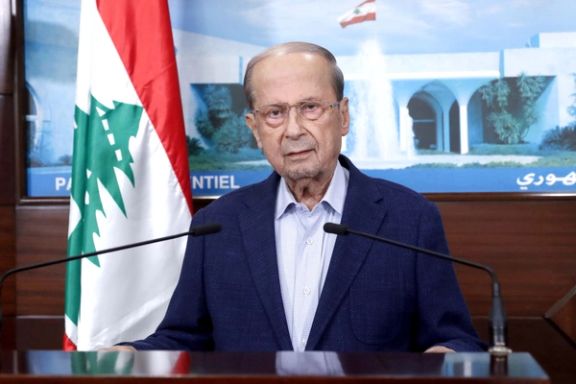
Iran has urged political factions in Lebanon to speed up the presidential elections, distancing itself from its proxy, Hezbollah.
In spite of Iran’s historic interference in Lebanese politics through its backing of the terror group, the regime’s Foreign Minister Hossein Amir-Abdollahian, said: "We will support any agreement that is reached among the Lebanese parties regarding the election of the president.”
Since former president Michel Aoun's term expired on 31 October, there has been no agreement on who shall succeed him.
The Iranian-backed Hezbollah party has supported the nomination of Suleiman Franjieh to be president. Franjieh comes from a noble Lebanese family, and his grandfather was president when Lebanon's 1975-1990 civil war erupted.
In a sidestepping of the regime’s political influence in the country where the economy is on its knees, he said: “We call on foreign countries to support the decision made by the Lebanese without interfering with its affairs."
The distance coming between the regime and Hezbollah, listed as a terror group in countries including the US, UK, Germany, the Arab League and Israel, may be a result of Iran’s recent detente with Saudi Arabia, which had been a vocal supporter of the Arab League’s listing of the group in 2017.
Saudi has also been involved in an eight-year war with another of Iran's proxies, the Houthis, in Yemen.
According to sources quoted in Al-Jumhuriya newspaper, Amir-Abdollahian may ask Tehran's allies in Lebanon to end their support for Suleiman Franjieh's presidential bid because "protecting the renewed relationship with Riyadh has the priority”.
After talks mediated by Chinese President Xi Jinping in Beijing, Iran and Saudi Arabia agreed to restore relations back in March.
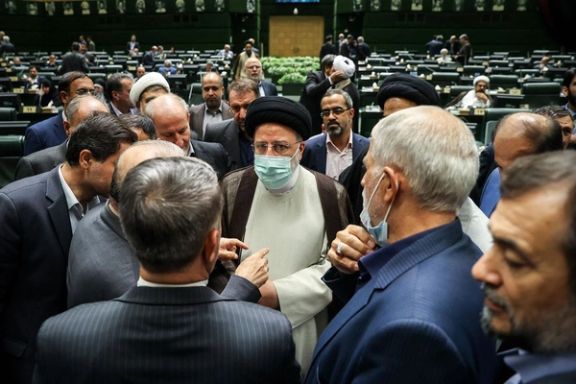
A member of the Iranian parliament's national security committee says 95 percent of lawmakers regret having called on Ebrahim Raisi to run for President in 2021.
Characterizing the Raisi administration as "a generally weak government," Shahryar Heidari told Khabar Online website on Wednesday, April 26 that the lawmakers who advocated Raisi's candidacy in the presidential election wish to apologize to the Majles (parliament) and the nation for their decision.
Heidari particularly criticized the government's economic team and characterized it as "inefficient." He said: "During the past days, Supreme Leader Ali Khamenei told the Majles once again that the country's number one priority is solving economic problems."
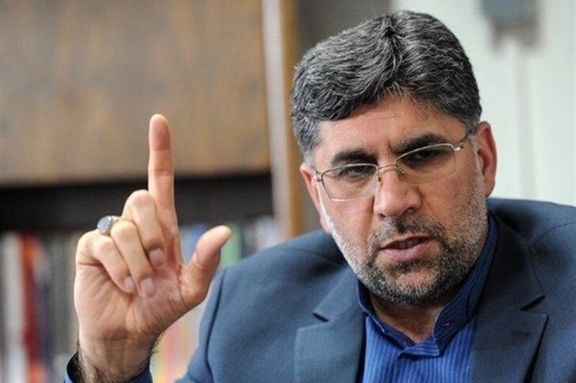
He added that the parliament's criticism of Raisi is mainly about his economic performance. "He needs to reshuffle his economic team and if he fails to do this, the Majles has to do something about it," Heidari said.
Since Raisi took office in August 2021, Iran’s economic crisis has worsened, with the national currency losing half its value, inflation skyrocketing and food prices increasing by at least 70 percent.
Speaking about the planned impeachment of Industry Minister Reza Fatemi Amin, Heidari said he would agree with the motion if he were to be replaced by a more efficient individual, but if someone even weaker than him will take over, the impeachment would be useless.
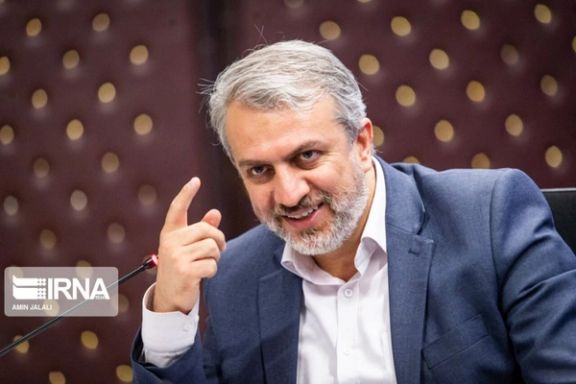
Meanwhile, Ghasem Saedi, a senior member of the parliament told Rouydad24 news website that the government's performance in the area of the economy has ruined individuals' and businesses' psychological security. Saedi added that the government cannot protect its social capital (legitimacy) merely by chanting slogans.
Saedi said that the people have many complaints about their economic and financial problems adding that they are disturbed and angry. He said: "Once we used to say that the people are unhappy about the 30-percent annual inflation rate, but now inflation rises between 10 to 30 percent during one month and this has robbed Iranian families of their power to plan for their lives."
Lawmakers have been telling the government for months that the government's approach to the management of the society's economy is not acceptable, Saedi maintained. The economy has been the country's main problem for at least a decade now, he added. The only way out of the current problem is appointing efficient and intelligent economic officials. The government should not remain hostage to its odd political ideology, he said. However, the question is why inefficient individuals have been appointed to key decision-making positions?
In another development, in line with parliamentary complaints about the inefficiency of government ministers, deputy from Tabriz, Ahmad Alirezabeigi told Rouydad24 that Fatemi Amin, the Industry Minister whose impeachment is on the agenda of the Majles, had earlier given 70 or 75 SUV vehicles to lawmakers to give up their motion to impeach him. However, both Alirezabeigi and Saedi reiterated that this time the members of the parliament are adamant to impeach the minister and remove him from his post.
Alirezabeigi further called on the Majles presidium, that put aside the previous impeachment from the parliament's agenda, to explain whether the vehicles given to some lawmakers were the reason why the impeachment motion did not go further.
Meanwhile, Alirezabeigi dismissed claims by other lawmakers that Khamenei's recent statement about putting an end to disputes between the three powers of the government meant that he had ordered the Majles to stop the impeachment of the Industry Minister.
The lawmakers' heightened attacks on the government, might be a tactic by the members of the parliament to distance themselves from the inefficient government during their last year in the Majles, in a bid to increase the chance of their re-election.
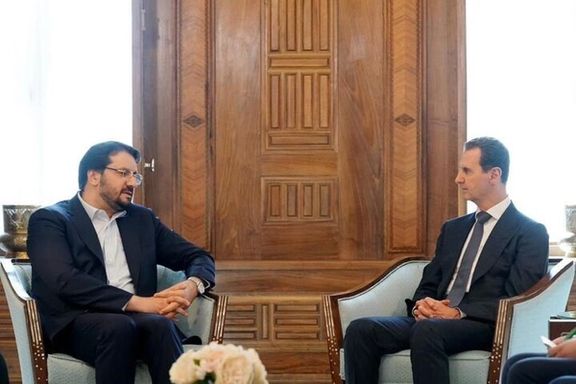
Iran’s Minister of Transport and Urban Development says the time has come to expand trade ties with Syria.
During his meeting with Syrian President Bashar al-Assad in Damascus on Wednesday, Mehrdad Bazrpash called for expanding bilateral cooperation in banking, energy, transit, transportation, and tourism.
Utilizing ports access, Tehran and Damascus can establish shipping lines to boost exports and imports, Bazrpash said, claiming Iran is also ready to train Syrian pilots and develop the Arab country's airports and refineries.
Although Iran has fought for a decade to save the Syrian government, it has a small share of Syria's trade, and is losing out to financially stronger players.
Iran's Revolutionary Guard, which usually tries to justify its involvement in the Syrian conflict, claims that trade and investment in Syria will pay off and compensate billions of dollars Tehran has spent supporting Bashar al-Assad.
The extent of Iranian military expenditures and financial aid to Syria to keep Bashar al-Assad in power is unknown but is believed to have run into billions of dollar at the expense of the Iranian people. Iranian parliament member, Heshmatollah Falahatpisheh, announced in May 2020 that the country had invested $30 billion in Syria and must recoup it.
With reconstruction costs estimated at $250-$400 billion, Syria urgently needs to improve economic ties with regional countries. In the last month, Assad and his aids have met with key figures in countries including the UAE and Turkey as several regional powers see the benefits of bringing Assad, one of Iran's regional puppets, in from the cold.